On every trip, there’s always one story that I can’t stop thinking about. Weeks after, months after, it’s there. Maybe not top-of-mind, but just a layer or two deep.
For me, in Sierra Leone, that story was Mariama Jr.’s.
Mariama Jr. was spunky, playfully mischievous, and a self-identified jokester. I liked her immediately. But as Mariama Jr. sat across from me and began telling her story, I quickly realized that her lighthearted nature was incredibly hard-earned.
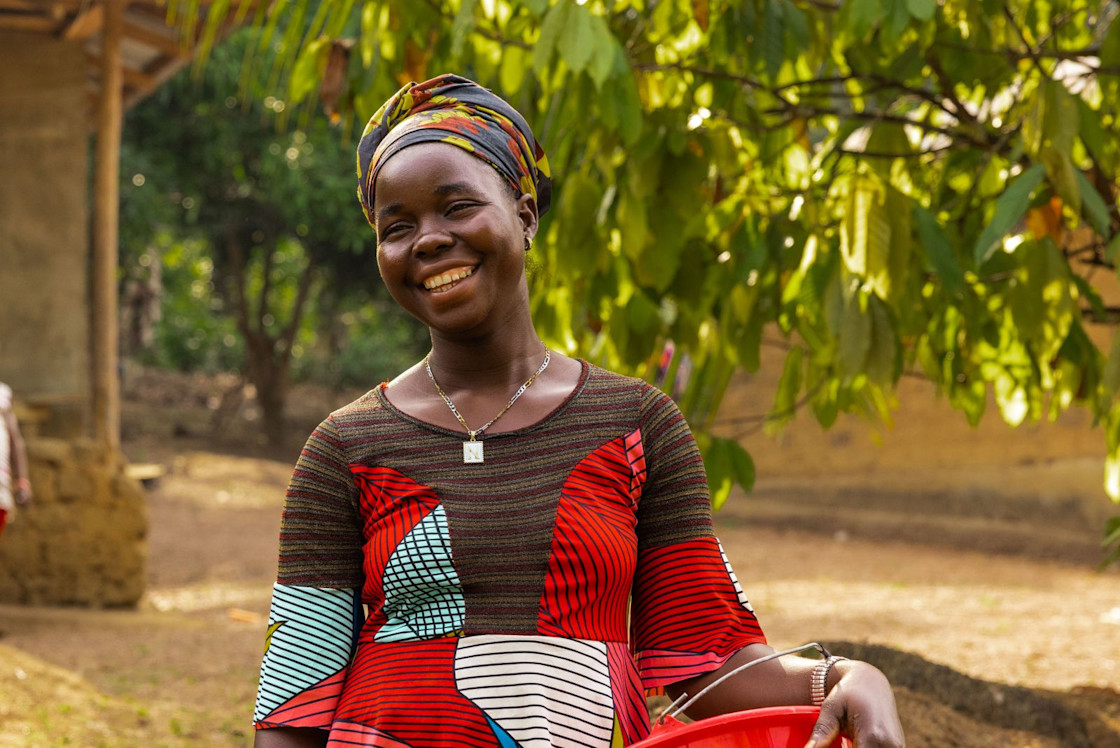
She started her story in 2010 — the year she got married and moved to her husband’s hometown. There, her only source of water was a stream, and sickness quickly followed. At first, she had all the usual symptoms. Diarrhea. Rashes. An upset stomach.
Then her stomach started to swell.
Everyone, including Mariama Jr., assumed that she was pregnant. But test after test came back negative. Even the nurses at the local clinic were confused. What could possibly be causing the swelling if not pregnancy? They referred her to another clinic in a different district even further away from home. New nurses ran more tests and finally found an answer.
Mariama Jr.’s stomach wasn’t swelling because of a baby. It was swelling because of contaminated water.
The cure for Mariama Jr. was going to require more than medication. She needed surgery. And again, she was referred to another location. This time, to a hospital in Kenema.
“It took me one year and four months to fully recover after the surgery. One year and four months.”
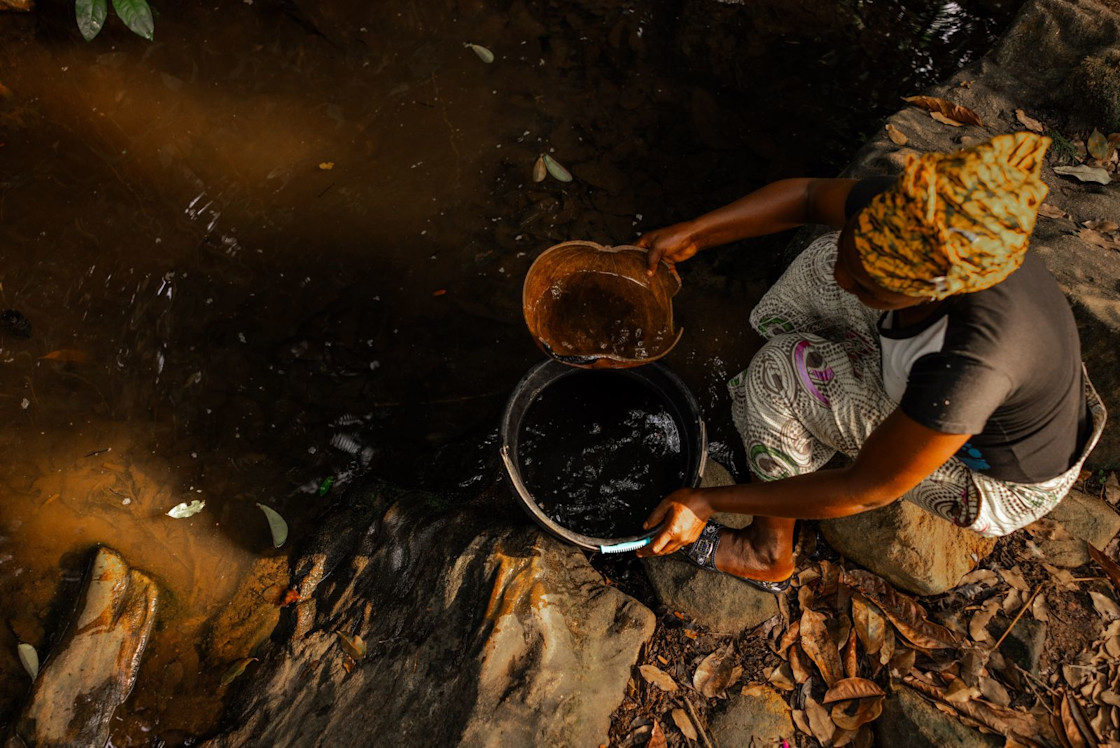
When she finally returned home, she dreaded going back to the stream to collect water. But with no other option, she returned. Her stomach started to swell shortly after.
But this time, the tests were positive.
Mariama Jr. was going to be a mom.
By now, Mariama Jr. was far too aware of how dangerous dirty water could be. She knew that it could destroy someone’s health — even a grown, adult woman’s — and she wasn’t about to expose her newborn to the same. And so, as her due date grew closer, she made plans to relocate.
“I moved to my hometown before giving birth because there is a good hospital and clean water running from the tap,” Mariama Jr. explained.
Safely in her hometown in 2015, Mariama Jr. gave birth to a happy and healthy baby girl. She named her Aminata*. Then, she waited.
Month after month, Mariama Jr. watched and carefully gauged whether Aminata was strong enough to go home. It wasn’t until Aminata started trying to walk — around 8 months old, Mariama Jr. estimated — that she decided it was safe to return.
I wish I could say that the sense of safety lasted. But immediately after returning, Aminata started getting sick. Diarrhea, vomiting, and constipation were frequent symptoms, and Mariama Jr. was spending all of the family’s money trying to treat them. It took a toll on her mental health, too.
“This was my first child, so when she was sick, I was very worried. I didn’t want to lose her. Sometimes I couldn’t even eat because I was worried about my child’s health.”
Her worry reached a peak when Aminata was two.
For two days, Aminata fought a fever. Everything she ate or drank came back up. On day three, when the fever still hadn’t broken, Mariama Jr. decided it was time to take her to the clinic.
The only problem? The closest clinic was roughly three miles away, and, at the time, only accessible by walking or motorbike — and no motorbike was available.
Mariama Jr. started walking.
But she didn’t carry Aminata on her back like usual; she carried her in her arms.
So she could watch Aminata’s face.
So she would know if Aminata was still alive.
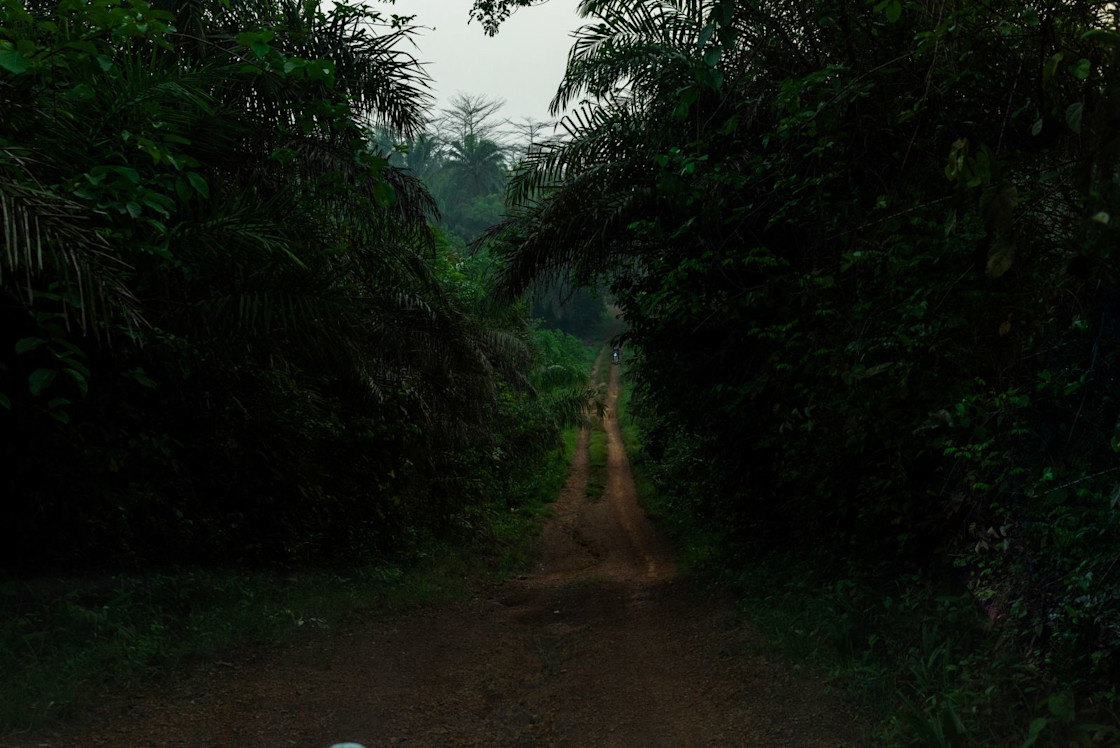
For two hours, Mariama Jr. walked with one eye on the road and the other on her daughter’s face. She hoped. She prayed.
She made it just in time.
Aminata and Mariama Jr. stayed at the clinic for an entire week. And though Aminata made a full recovery, she didn’t come home. Because in that week, Mariama Jr. made an impossible choice — one that broke her heart and was her only chance of saving it.
Aminata, now that she had recovered, would need to live somewhere else.
Somewhere with better water — where she would be safe. Mariama Jr. simply couldn’t stomach the idea of bringing Aminata home when the circumstances hadn’t changed. Not when it meant that Aminata would only be exposed yet again to the dirty water that nearly killed her.
So for the next two years, dirty water separated mother and daughter. Mariama Jr. missed milestone after milestone of her young daughter’s life because of a simple, basic, ridiculously solvable need.
And that’s why her story has stuck with me.
I couldn’t believe the series of tragedies that Mariama Jr. endured at the hands of dirty water. I couldn’t stop remembering how Mariama Jr. held out her arms, reenacting for me how she carried her daughter to the clinic. I couldn’t stop thinking about the way your world must crumble when you make the impossible choice to send a child away. And I was furious that this was still a problem in the twenty-first century.
I’m going to take a second here to let that anger simmer. I think Mariama Jr.’s story deserves it.
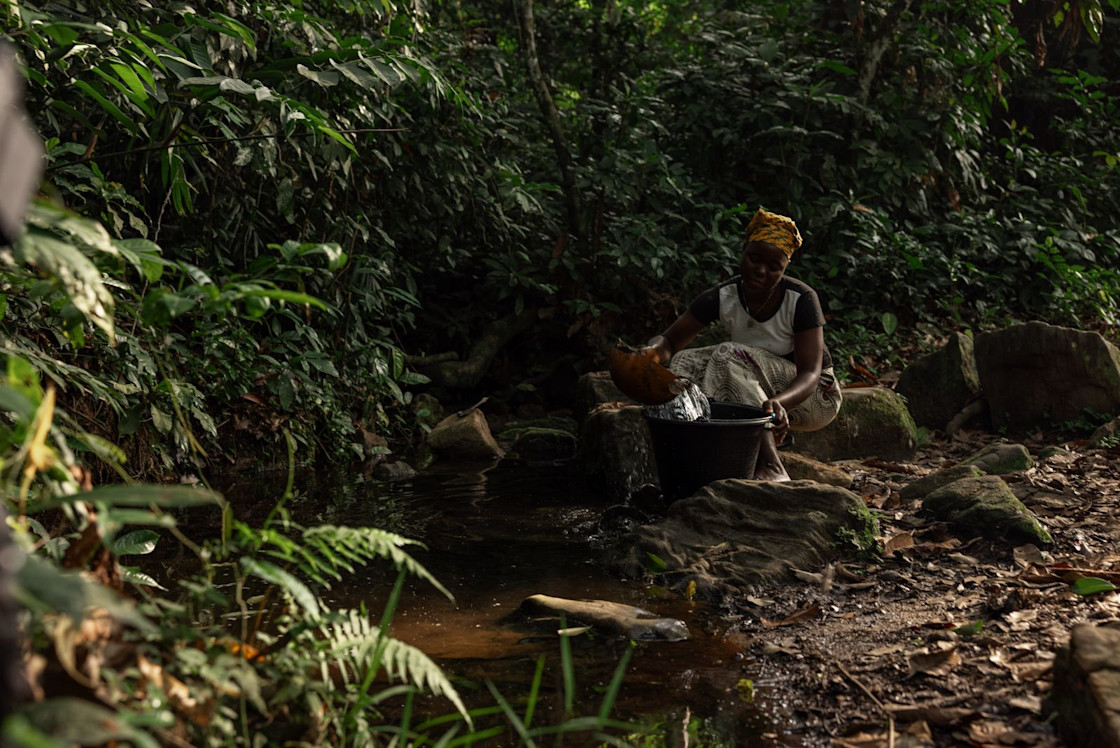
And now, let’s get to the happy ending because Mariama Jr.’s story deserves that, too.
On August 28, 2020, our local partner GOAL finished building a water point in Mariama Jr.’s community. Clean water poured from the hand pump, and Mariama Jr. stepped forward to taste it — the first in line. As she cupped her hands and raised the clean water to her lips, a new future came into view. One without sickness. One with her family reunited.
“When we had the borehole [water point], I brought my daughter back. When I saw her on the bike, I was so happy, I ran toward her and gave her a big hug. … We were happy because we could finally drink clean water and not get sick again.”
It gets better.
Today, Aminata is 8 years old, and you may have noticed that you haven’t seen any photos of her. That’s because she was away at school during our visit — an idea that would have been unfathomable just a few years before.
“She wouldn’t be able to attend school if not for the borehole. I spent all our money when she was sick, I couldn’t afford to buy clothes. And if there was no borehole water, that disease would still plague her and have prevented her from going to school,” Mariama Jr. explained.
Now, brace yourself for the cutest show-and-tell in the history of show-and-tells: Aminata is so proud of her community’s clean water, that she often has one request for her mom …
“When my daughter goes to school, she asks me to put water in containers so she can take it to show her friends.”
(I know. We love her, too.)
As for mom, Mariama Jr. is doing everything she can to make sure their water point lasts. She serves as the Caretaker on the Water Management Committee, ensuring that the area is clean and the hand pump is used properly.
“I hope it still works while my daughter grows up. This is why we are trying very hard to protect the water from germs and contamination. When there is access to clean and pure water, everyone will have good health.”
And when it comes to fear, Mariama Jr.’s worry about water is officially a relic of the past.
“Now that we are drinking clean and pure water, I have no fear. Because I know my health is good now and my child is also healthy.
No fear at all.”
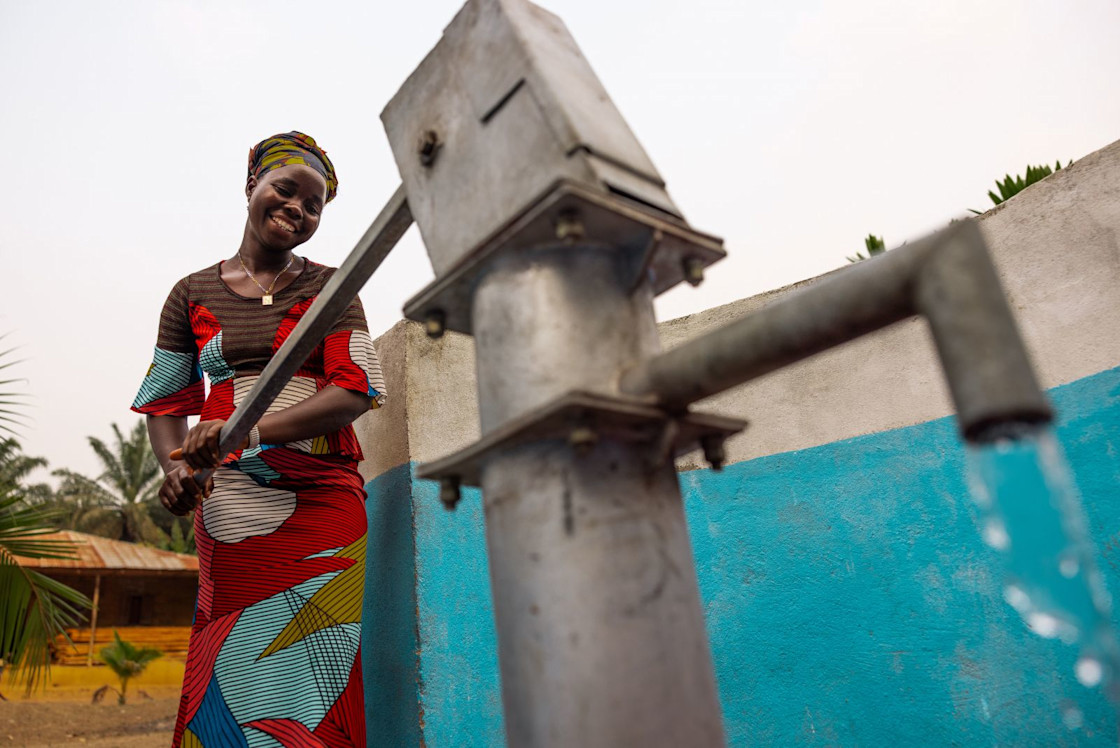
Aminata’s name has been changed in keeping with our Child Protection Policy.
Photos By: Cubby Graham

